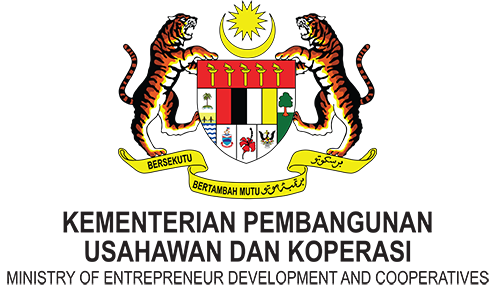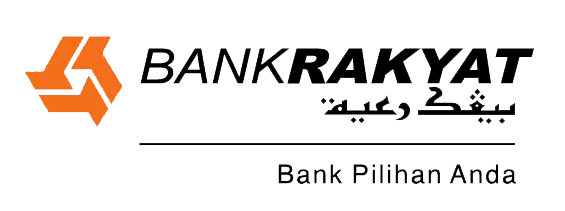
Rizal Nainy of SME Corporation Malaysia talks about the importance of investing in homegrown businesses and their vital role in the global market
With Malaysia’s post-pandemic recovery in its nascent stage, one of its key drivers—and one of the country’s major economic contributors—are small and medium (SMEs). Reported to have contributed to 38.2 per cent of Malaysia’s gross domestic product (GDP) and 48 per cent of national employment as of 2020, it’s evident that SMEs significantly contribute to job creation and income generation.
And as the pandemic is propelling us towards a future where connectivity and digitalisation have never been more prevalent in a world gone online, SME Corporation Malaysia highlights the need to further develop these local businesses, aiming to propel them in both the local and global markets.
For Rizal Nainy, CEO of SME Corporation Malaysia, he believes that SMEs play a major role in the region’s socioeconomic spheres. To maintain their involvement in the long-run, developments in aspects such as digitalisation, innovation, sustainability, and inclusiveness must be made. This includes the developmental programmes the company has initiated, in particular the (E50) award.

What is the Enterprise 50?
It’s one of our champion projects! While we have at least 34 programmes and activities throughout 2022 that offer local SMEs further development, the E50 is important not just because it’s the most prestigious recognition for these local businesses, but it acts as a benchmark or even a catalyst that provides encouragement for SMEs to be competitive and innovative, transforming them into new drivers of growth.
It's an annual award that’s organised by the SME Corporation Malaysia and co-organised by Deloitte Malaysia. It’s created with the aim to recognise and celebrate the achievements of forward-thinking SMEs that have boosted economic growth.
How does it work?
First, SMEs must register for the SME Competitiveness Rating for Enhancement, also known as SCORE. They need to get a rating of four stars and above to be eligible for the E50 award. It also bears saying that even if participating businesses can’t obtain the qualifying results, SCORE can provide them a diagnostic of their brands’ strengths and weaknesses. We run an impartial and stringent evaluation process that serves as an effective barometer for SMEs to benchmark their business performance against industry standards. It’s conducted by independent industry players and experts in the field.
They will go through a financial evaluation process by Deloitte, and a non-financial exercise by our strategic partners and business councillors such as RHB, MIDF, SME Bank and more. Then, we do an on-site visit and conduct a moderation meeting before we conclude the process. This entire process can take about six to seven months.

How can SMEs benefit from the E50 award programme?
Once these businesses make it into the final 50, they are recognised as the crème de la crème in the industry. They get to access a thorough report card and consultation done by Deloitte that allows them to evaluate their strengths, weaknesses, opportunities, and threats. They also gain opportunities to network with established industry players, the E50 alumni, and other Club 50 members. Additionally, they are able to have fast-lane loan processing, allowing them to better able improve and expand their business to the global market. What’s more, invites to forums, workshops, and preferred business linkages with multinational corporations will be sent to the awardees. One of the biggest beneficial aspects of the award is that these 50 SMEs will gain widespread recognition via the media coverage that SME Corporation Malaysia provides.
Ultimately, the focus is getting SMEs to shift towards the global market, which aims to increase their contribution to the economy by improving the business ecosystem and the competitiveness within it. Initiatives like the E50 award helps SMEs achieve the target of being able to contribute 45 per cent to the nation’s GDP and 25 per cent to the total exports by 2025. To work towards those targets, efforts will be made towards promoting high technology adoption, talent upskilling and thorough R&Ds to transform these industries into producing high-value products and services.
What are some key aspects to running an SME in a post-pandemic environment?
To navigate this current business ecosystem, SMEs need to focus on digitalisation, innovation, sustainability and inclusiveness. Because they play such a major role in the region, they need to be involved with the building process of this new reality.
By adopting developing technologies such as e-commerce, digital payments, teleworking, remote learning, video conferencing, online health services and end-to-end logistics services, SMEs can respond better to the increasing demand and open up better opportunities for themselves. This is important as the online presence for SMEs have doubled from the 35.3 per cent in 2019 to 75.7 per cent in 2021.
And by paying close attention to the principles of sustainably, especially the environmental, social and governance (ESG) into business practices, these SMEs can properly innovate and orient themselves towards new market possibilities.
Lastly, by building an inclusive business, SMEs can become a catalyst for increased employment, which brings about socioeconomic stability for the country.






















